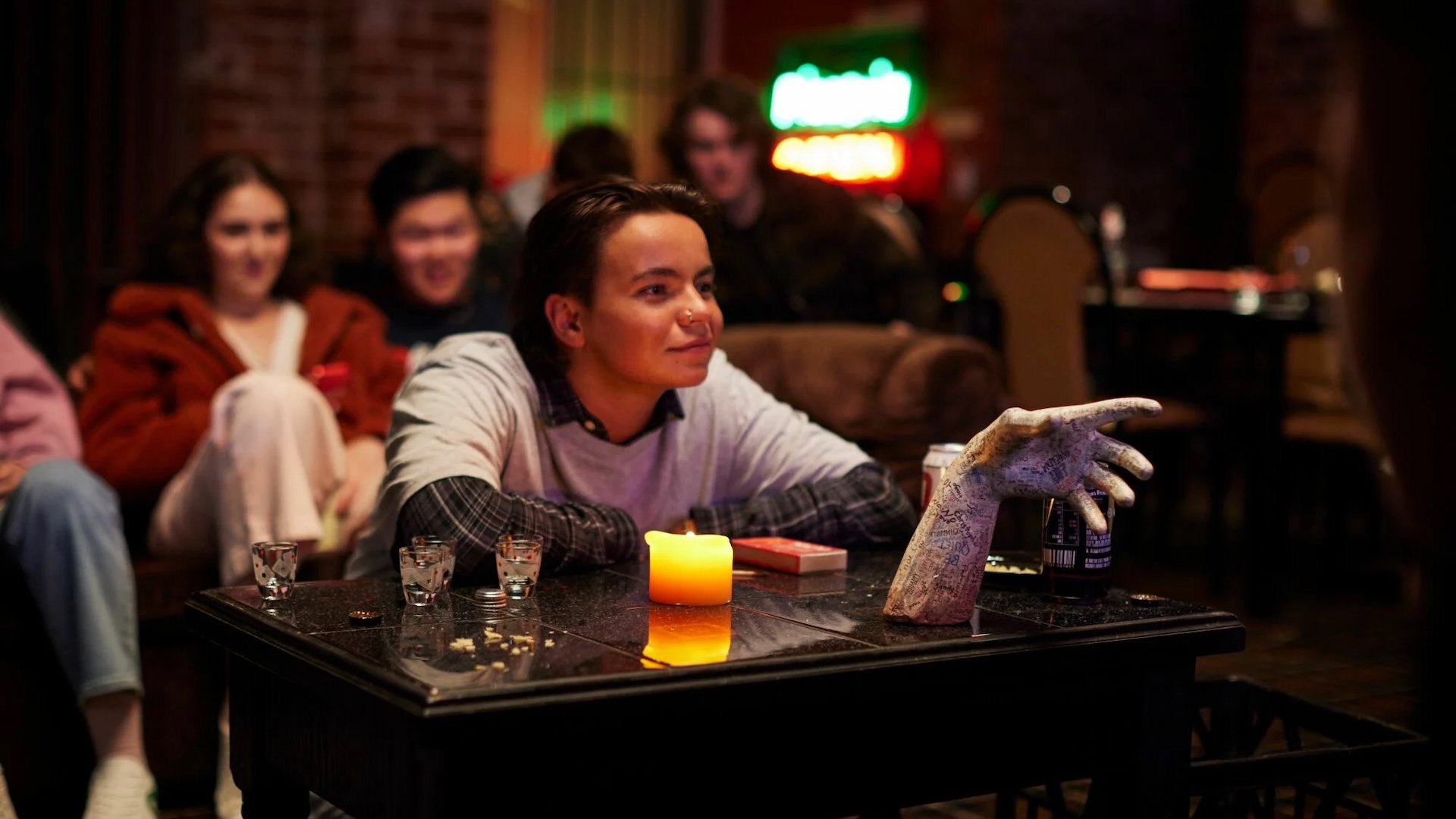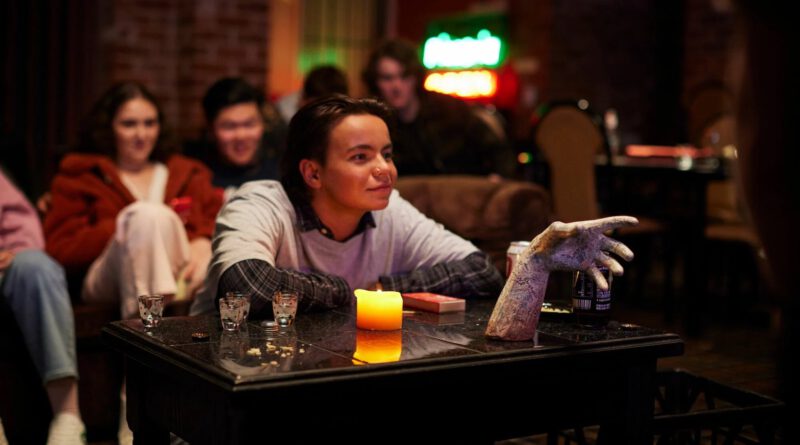‘Talk to Me’ studios post statement of solidarity with Zoe Terakes after Kuwait ban

The filmmakers behind Australian horror film Talk to Me have issued a joint statement in solidarity with actor Zoe Terakes, following the film’s ban by censors in Kuwait over their casting.
As reported by The Hollywood Reporter, film production company Causeway Films and independent movie finance firm Bankside Films shared a united message of support for Terakes, who is nonbinary and trans masculine.
“We stand in solidarity with Zoe Terakes following the decision by Kuwait to ban the film Talk to Me,” reads Causeway and Bankside’s statement, published by THR. “Zoe has made their own statement, which we fully support, and we are immensely proud of their involvement in the film.”
The feature debut from Australian YouTubers RackaRacka (aka Danny Philippou and Michael Philippou) and a co-production with A24, Talk to Me isn’t the first film banned in Kuwait for LGBTQ references, characters, or themes. Namrata Singh Gujral’s film 5 Weddings was banned in 2018 for the inclusion of trans characters; Thor: Love and Thunder in 2021 “due to scenes of gay characters”; Lightyear in 2022 for its same-sex kiss; Doctor Strange in the Multiverse of Madness the same year for Xochitl Gomez’s character America Chavez, who is gay in the film and comics; Chloé Zhao’s Eternals for featuring the MCU’s first gay superhero and gay kiss; Steven Spielberg’s West Side Story for the inclusion of trans character Anybodys, played by nonbinary actor Iris Menas.
However, as THR noted, it’s the first to be censored in Kuwait directly for the gender identity of a cast member, simply for being in the film. And notably, in the movie, Terakes’ character Hayley’s gender identity is never mentioned or part of the narrative — it’s a movie about a haunted hand that terrorises a bunch of teens after a séance.
Terakes posted their own statement on Instagram on Sunday following news of the film’s “targeted and dehumanising” ban, and encouraged people to donate to U.S. and Canada-based nonprofit Rainbow Railroad, an organisation that helps at-risk LGBTQ individuals around the globe get to safety.
“I’ve been wondering how to respond to this. Whether it deserves the dignity of a response,” they wrote. “This isn’t the first film Kuwait has banned. If there are queer or trans themes or scenes in your film, it’s probably not gonna make it to the Gulf. Which is devastating and terrifying in its own right. But our film doesn’t have queer themes. Our film doesn’t actually ever mention my transness, or my queerness. I am a trans actor who happened to get the role. I’m not a theme. I’m a person. Kuwait has banned this film due to my identity alone.”
“Our film doesn’t have queer themes. Our film doesn’t actually ever mention my transness, or my queerness. I am a trans actor who happened to get the role. I’m not a theme. I’m a person. Kuwait has banned this film due to my identity alone.”
“Reportedly, this is a first. This is a new precedent,” they continued. “It is targeted and dehumanising and means to harm us. As much as it is very sad to be on the receiving end of this, what is even more heartbreaking is what this precedent means for the queer and trans people of Kuwait. Representation is hope. Representation is a light at the end of the tunnel, a reason to keep going, something to hold onto in the dark, a voice that whispers things can be better than they are.
“Eliminating trans actors on screens will not eliminate trans people (as much as the government of Kuwait wishes it would) but it will eliminate a lot of hope. And hope is such a large part of how we live as marginalised people. It’s how we learn to move through the hatred and the mistreatment and the violence. We look to all the people who have done it before us, we look to all the people who are doing it beside us, and that gives us hope to keep going.
“We are a community that has learnt to depend on each other, because cis people have historically been no help. Therefore, our survival is so dependent on our ability to look to each other, to share with each other, to lean on each other, to love each other, to see each other. My heart breaks for the trans people and queer people of Kuwait who have so few places to look.”
Discrimination and police violence toward LGBTQ people, especially trans women, in Kuwait has been long documented and reported, including in-depth reports by organisations including the Human Rights Watch and Human Dignity Trust.
Only last year, Kuwait ended the criminalisation of trans people when the constitutional court overturned a law used to prosecute transgender people, a law that has actually been deployed to discriminate against, harass, abuse, assault, detain, torture, and degrade trans people in the country. As recently as 2021, a transgender Kuwaiti woman was sentenced to two years in prison for “imitating the opposite sex” under Article 198 of the 1960 Penal Code.
